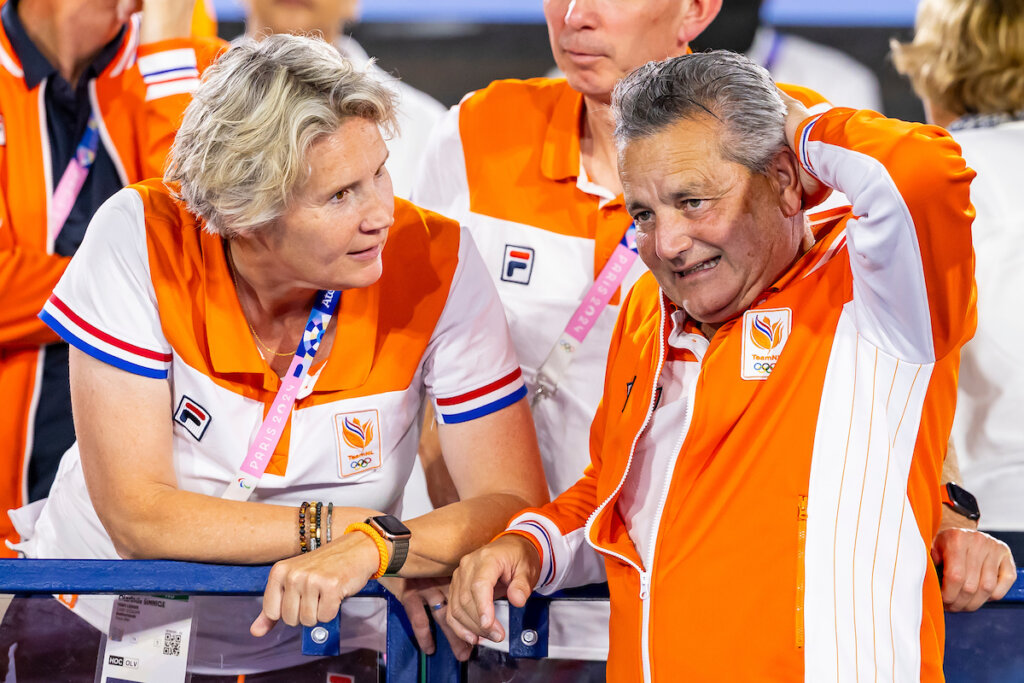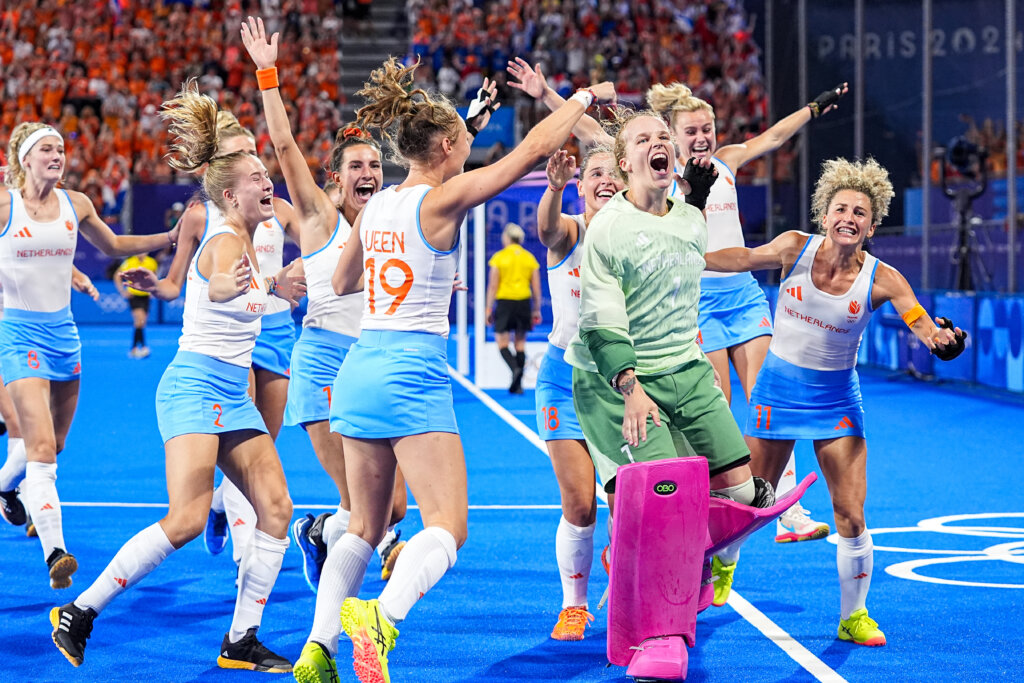Thirteen days ago, Paul van Ass won gold with the Orange women at the Games in Paris. But it has already become clear that the Olympic final against China was his last duel as national coach. He is not closing the coaching book yet. ‘They can call six months before Los Angeles.’
‘I don’t think it’s strange at all to look back. To realise that this was it. It’s okay. I’m happy with how it turned out. I’m pretty down-to-earth about that. It feels round and finished. It doesn’t get any better than this for me.’
Van Ass, who has just turned 64, says it without regret, dissatisfaction or doubt. The news of his departure had been out for less than fifteen minutes at the time of the call. Two days earlier, he had put an end to it with the hockey association. ‘That was not a sudden decision. We had already talked about my future before the Games. At that moment, I did not want to make a decision about it. First Paris, then move on. I did not want to let things down anyway. But I also noticed that I found the period until the next Olympic Games very long.’
Tell me?
‘The role of national coach is challenging, interesting and sometimes complicated and difficult for me. At this stage of my coaching career, I don’t see that for another four years. I also have my work as an entrepreneur outside of hockey. I want to invest time in that too. I would have liked to stay for a while longer, if the association had wanted that. To do some matches in the Pro League, or something like that. Or maybe even the European Championship next summer. But you don’t build anything with that. That would mainly be minding the shop. That’s not very chill, so it’s actually better this way. They can now start building a group towards 2028. A new start, with a new coach.’
Still curious: continuing until the 2026 World Cup in your own country was not an option for you either?
‘Let’s be honest: if you’ve done the Olympic Games, the World Cup is also less interesting. If you add up my previous national coach roles, I’ve been working internationally for nine years. I’ve already experienced quite a lot in that time. As I already said: it doesn’t get any better than this, after such a historic tournament with two golds. Then it’s fine too. At my request, we had that conversation on Tuesday. A follow-up conversation, so it didn’t come out of the blue .’
You mentioned the word heavy just now. Was it harder for you in Paris than you had expected?
‘Not necessarily. But the tournament carries a lot of weight with it. You are ‘suddenly’ playing in front of the world. As a coach you lead the staff, the group of players, you also try to run the outside world a bit and you also have to keep an eye on yourself. That takes energy. Perhaps more than people think. It was an intense process. Super cool too. Because I would say ‘yes’ to the job again now, with the knowledge I have now. It didn’t disappoint me. But to put pawns on the field again for four years to get to that point again…’

That’s a lot of pawns.
‘Exactly. A bit too many.’
Do you look back on Paris with satisfaction?
‘Yes, I thought it was fantastic. I think I was able to contribute to the culture of the team. The atmosphere has become more open and light-hearted, but not less professional or fanatical. Would I succeed in changing the culture? I think so, when I look back now. Experiencing such a process with the best team in the world, I found it very interesting.’
Before the Games, you indicated that you wanted to show spectacle in Paris. That it was your personal mission to promote the sport. Did you succeed, do you think?
‘Certainly. Spectacle was also turning the group match against Germany around or coming back to the final. And in the semi-finals, we showed our dominance. Only, scores like the 8-0 and 7-0 (which the Dutch did achieve in the Pro League, ed.) did not happen. That’s right. I didn’t expect that myself. It’s the Games after all… Everyone dives for a ball there, which they normally let go. Other teams rose above themselves.’

And your girls?
‘They knew at the Pro League: we’ll win this. In Paris they knew they couldn’t make a mistake. That’s why the quarter-final against Great Britain was so different from the Pro League match in December, when we outplayed them 8-0.’
That is also due to your own stress.
‘Yes. And fortunately there is sometimes tension. Because otherwise a tournament like this is nothing. As a coach I am proud that we were able to go through that tension and still win. That makes it special for me too. I said it before: you don’t just pick up that gold medal at the supermarket. That road there is too long for another trip. But I do secretly hope that someone will call me six months before the Los Angeles Games. That would be the best scenario.’
Ha, who should that be?
‘I don’t know yet. In such a short period you only have the benefits of the tournament, not the burdens. I have no plans in the short term. I also don’t know if I would want to do anything at club level. I don’t think so now: in six months it might be different. We’ll see. First I’ll go on holiday.’















